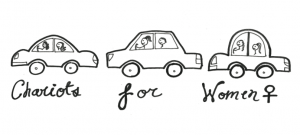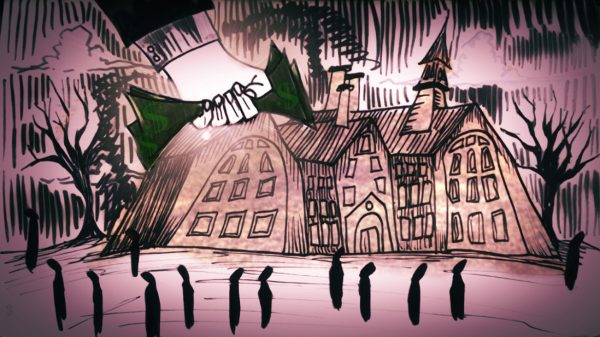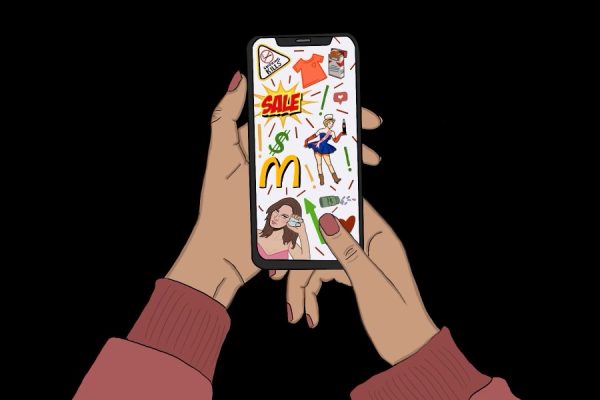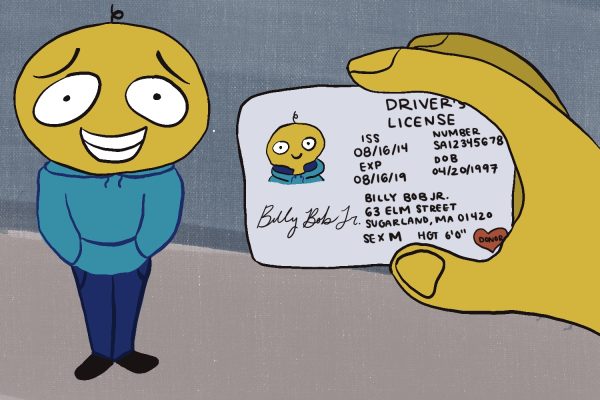A new rideshare chauffeurs women to safety
[media-credit name=”ELISE MITCHELL” align=”alignnone” width=”300″] [/media-credit]
[/media-credit]
Imagine: you’re a lady needing to get across town. The bus routes are too meandering, the cabs are too expensive, and it’s definitely too far to walk.
But never fear! Uber is here! You find your ride and are feeling good about this decision, right up until you enter his car.
There are some weird people, but this guy makes you feel like you’re about to be on an episode of “Law and Order: SVU.” His car is dirty and smells like something is rotting; he’s got a stained t-shirt and a neckbeard; he asks you weird, personal questions; and to top it off, he is listening to Nickleback. You thankfully make it to your destination with no problems, but you’re left terrified and wondering about the possibilities.
An Uber ride like this would be terrible for anyone, but there is no denying it’s particularly scary for a woman. Women face a lot of violence to which men are generally not subjected, and sexual assault during an Uber ride is, unfortunately, not uncommon.
According to a March 6 Buzzfeed News article, a search of Uber customer complaint tickets including “sexual assault” or “rape” brings up a whopping 11,897 results combined. Uber claims the “legitimate” count to be more like 175 combined, but frankly, any number above zero is way too high.
This is also just the number of reported assaults. There could be, and often are, a large number of instances of unwanted sexual conduct going unreported. Also, even if a woman is not actually attacked, a ride like the one described above shouldn’t be something anyone has to deal with. Getting a ride across town should be safe.
Unfortunately, there aren’t many other options out there, but there soon could be. Chariots for Women is a new ride-share organization by women, for women. The app was set to launch April 19, but was pushed back to sign up more drivers. Many people are extremely excited about the idea, but there are also many critics.
Chariots for Women was actually founded by a man: Michael Pelletz. Pelletz is a former Uber driver, and he was struck one night by how unsafe the system can be. According to the Chariots for Women website, he was driving one night when an incoherent man with eyes rolled back came into his car.
He was babbling, and Pelletz felt extremely unsafe and ended up pulling over and getting the police. He began thinking about the situation, and how he would have handled it if he had been a woman. He decided there had to be something safer for his wife, daughters, and women everywhere.
Thus, Chariots for Women was born. The service is essentially the same as Uber, but the drivers and the passengers are all women (and children under 13 may ride with an adult). The top priority of the company really is safety.
There is an extensive background check for every driver using the Safer Places screening system, one of the most thorough systems out there. When a woman books a ride, she is given a picture of the driver, the make of the car, and the license plate number.
There is also GPS tracking of the car to see exactly when it will arrive, and even a code word to be exchanged between driver and passenger before the ride can begin.
In addition to all the safety measures, Chariots for Women donates 2 percent of every fare to a women-based charity combating issues such as cancer, sexual violence, and abuse.
I am extremely excited about this new company. They have a really amazing mission and are clearly trying to make women’s lives much safer. A creepy driver like the one above is always going to be terrible, but a woman always feels less creepy than a man in those situations.
I’m not the only woman that thinks so. In fact, praise has been coming from many sources, including some of the most popular women’s magazines, like Cosmo and Glamour.
But there are always going to be critics. The main issue people are taking is this violates anti-discrimination laws.
“There’s nothing wrong with advertising particularly to a female customer base. But if a company goes further and refuses to pick up a man, I think they’d potentially run into legal trouble,” attorney Dahlia Rudavsky said in a March 28 Boston Globe article.
Unfortunately, that’s true. Chariots for Women is interested in exclusion for all the right reasons, but sometimes the law doesn’t care.
The passenger issue is easier to get around than the issue of employment, however. “To limit employees to one gender, you have to have what the law calls a bona fide occupational qualification. And that’s a really strict standard. For gender, it’s not enough to say, ‘We really just want to have a female here because our customers prefer that to feel safer,’” said lawyer Joseph Sulman in the same Globe article. Unfortunately, that’s true too, but there might be a way around it.
Customer satisfaction cannot really be used as a “bona fide occupational qualification,” but there are some cases of exception. Customer preference may “be taken into account only when it is based on the company’s inability to perform the primary function or service it offers,” according to the 1972 Diaz v. Pan American World Airways, Inc case.
There is a possibility this loophole could work. The primary function of Chariots for Women is to offer safe rides and safe employment to women. It could be argued effectively that with this as the primary function, the service being for women by women is a necessary component since it is what makes the drivers and passengers feel most safe.
I am not a lawyer or a political scientist, but I see potential in this loophole, and in Chariots for Women I see a fantastic idea that many people really want to see happen. To me the arguments against it are absurd, like the rich complaining that people in poverty get welfare benefits and they don’t.
Women are not trying to be exclusionary to form our own secret “No Boys Allowed Club.” The exclusion is for safety purposes, purposes anyone with a brain can see are valid.




![Can’t buy me [self] love](https://vtcynic.com/wp-content/uploads/2024/04/self-care-FINAL-600x398.jpg)






